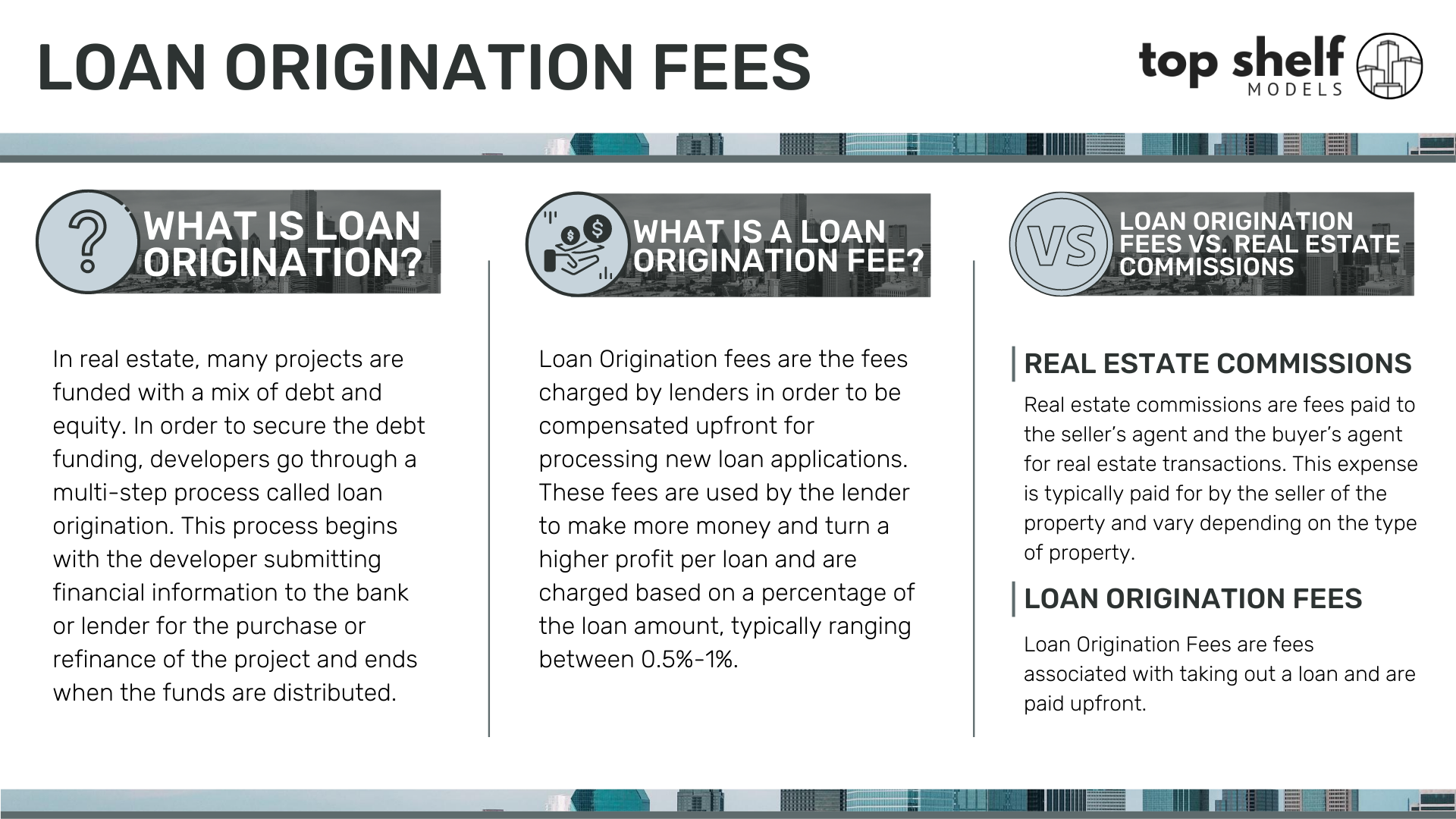In this example, we enter 1.5% for the origination fee in cell J28, which is blue because it is an input cell. From there, the model calculates the origination fee in cell K28 by multiplying the origination fee percentage by the LTC loan amount in cell K17. The origination fee then flows to the levered cashflow portion of the monthly and annual cashflows tab.





